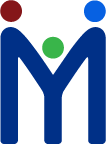
Excellent question, thank you for asking. ADHD (attention deficit hyperactivity disorder) may be more common than you think! According to the Center for Disease Control (CDC), 9.4% of all school age children have ADHD, but it can go undiagnosed until teen years or adulthood. It’s also common for ADHD to run in families, such as with a parent, but many may never know they have ADHD. There are three different types of ADHD and symptoms may span from mild to severe.
- “Inattentive Type” – People who have a hard time concentrating or focusing on a task.
- “Hyperactive/Impulsive Type”- People who feel restless and sometimes do things without fully thinking through what they are about to do.
- “Combined Type” – People who have trouble with both concentration and restlessness.
ADHD (by itself) isn’t considered a learning disability, but it’s very common for kids who do have a learning disability to also have ADHD. Talk to your school counselors, because students can often receive extra help under what is called the Disabilities Education Act (IDEA). It’s important to share your concerns about ADHD with your healthcare provider (HCP) because they can help determine if the symptoms you are experiencing are related to ADHD or perhaps depression/anxiety or a thyroid problems. Your health care provider may suggest getting more records from your teachers, special screening tests, or formal neuropsychological (neuropsych) test. If you have ADHD, your HCP can prescribe you medications and other strategies to help manage your symptoms. It’s very important that you consult your HCP before ever starting any medications.
 Young Men's Health
Young Men's Health